
Visiting Fellow Paul Salopek discusses plans for his Out of Eden walk around the world
About
75 Nieman Moments
In honor of the Nieman Foundation's 75th anniversary in 2013, Nieman Reports published 75 stories highlighting the many ways Nieman fellows and the Fellowship promoted and elevated the standards of journalism.
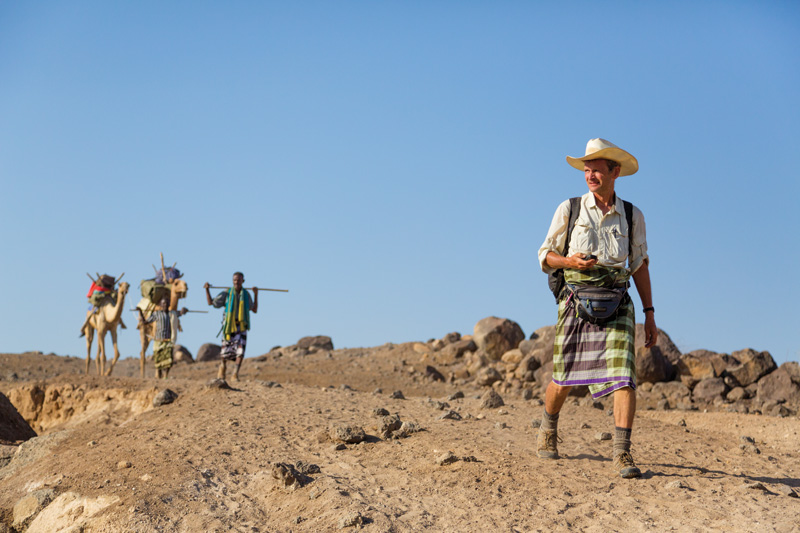 Paul Salopek, NF '12: "I probably worked harder at Harvard than I ever did in the field. I pulled 20-hour days and often fell asleep in my clothes (an experience remarkably like foreign corresponding)."
Paul Salopek, NF '12: "I probably worked harder at Harvard than I ever did in the field. I pulled 20-hour days and often fell asleep in my clothes (an experience remarkably like foreign corresponding)."
 Philip Meyer, NF '67: "I realized that [Harvard professor Chad] Gordon's tools for quantifying aspects of human behavior could be applied to newsgathering."
Philip Meyer, NF '67: "I realized that [Harvard professor Chad] Gordon's tools for quantifying aspects of human behavior could be applied to newsgathering."
 Gene Roberts, NF '62: "My mind opened wide in ways I never expected. Later, when I became The New York Times’s chief Southern correspondent in the mid-1960s, I put the numbers of several social psychologists in my notebook. I called them frequently."
Gene Roberts, NF '62: "My mind opened wide in ways I never expected. Later, when I became The New York Times’s chief Southern correspondent in the mid-1960s, I put the numbers of several social psychologists in my notebook. I called them frequently."
A.B. Guthrie Jr., NF '45: "I didn't know then, though I surely learned later, that a teacher can only suggest, can at best reveal some of the tricks by which illusion is wrought. The rest is up to the student."
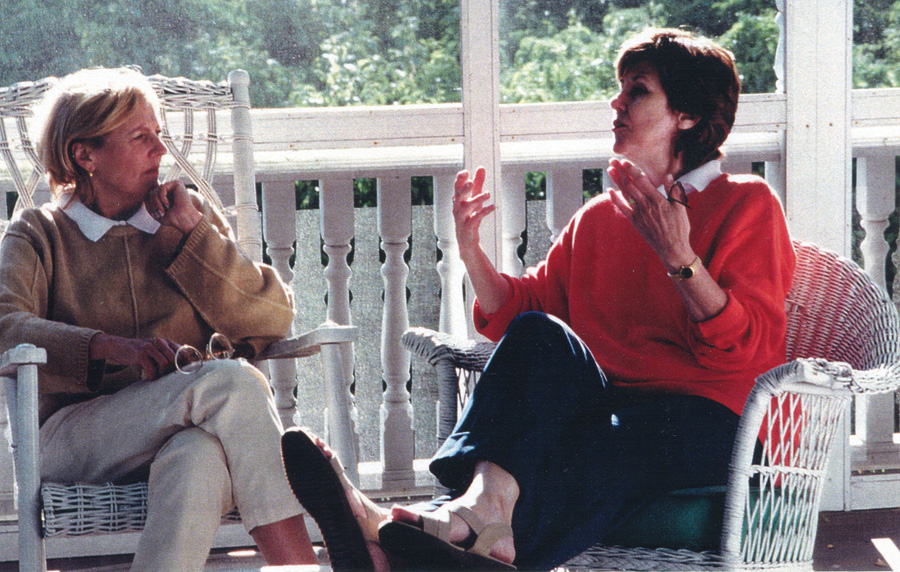 Ellen Goodman, Patricia O'Brien, NF '74: "For the two of us, there was the additional moment—the importance of finding another woman exploring all the professional and personal issues raised by the women’s movement and realizing we could break rules and take risks."
Ellen Goodman, Patricia O'Brien, NF '74: "For the two of us, there was the additional moment—the importance of finding another woman exploring all the professional and personal issues raised by the women’s movement and realizing we could break rules and take risks."Lorie Hearn, NF '95: "The Nieman year gave me a gift that was totally unexpected, a series of conversations, encounters and contemplations that converged to change the course of my career. … It gave me the confidence to leave traditional journalism to be part of the future of journalism."
Larry L. King, NF '70: "[Professor Theodore] Morrison is teaching me something, too: Sometimes I find that I knew, or in some corner of my soul suspected, some of his favorite maxims; it helps, however, to hear them articulated."
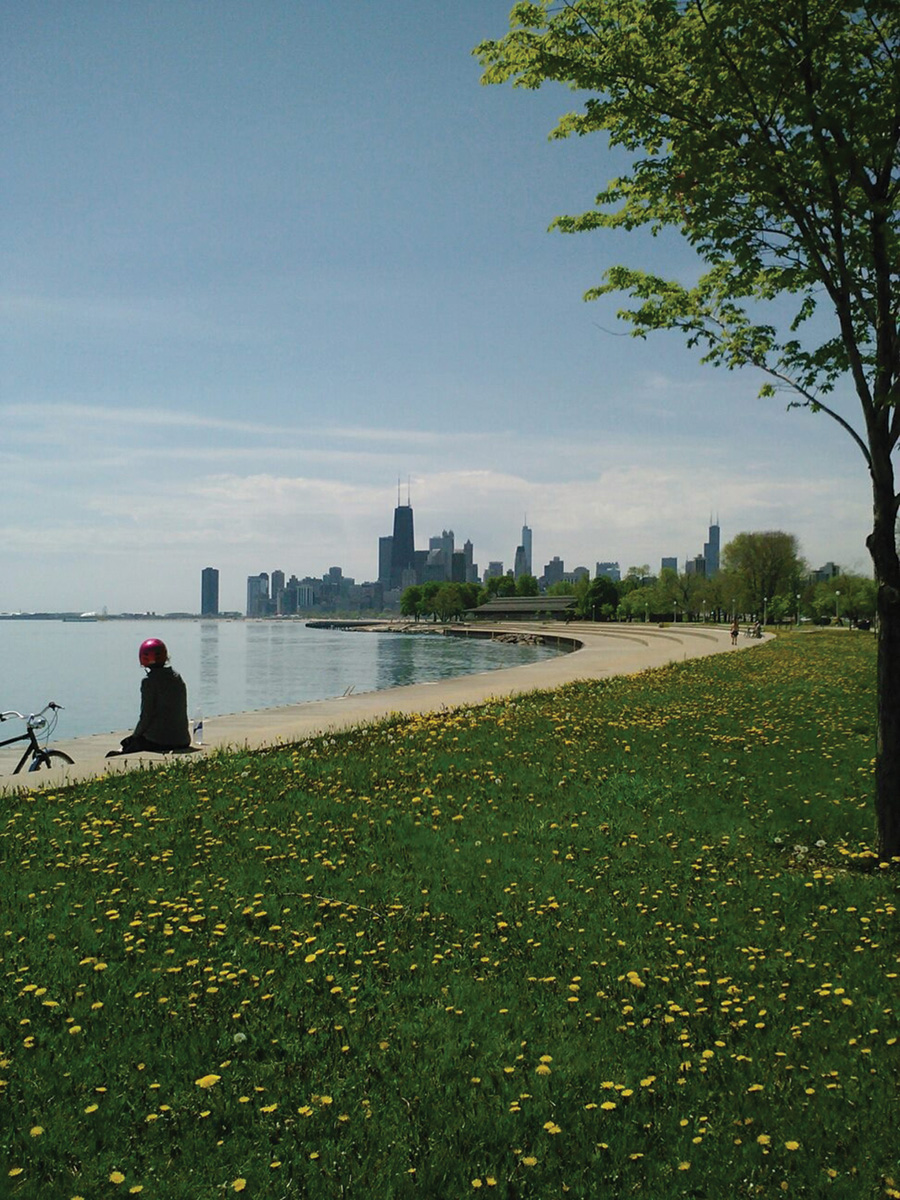 Mary Schmich, NF '96: "When I went back to my job … I carried the word ‘courage’ with me like a lucky charm, and to this day I’m fortified by the people who during my Nieman year helped me find it."
Mary Schmich, NF '96: "When I went back to my job … I carried the word ‘courage’ with me like a lucky charm, and to this day I’m fortified by the people who during my Nieman year helped me find it."Morton Mintz, NF '64: "When I arrived in Cambridge, I had no thought of doing a book, but once the opportunity arose, Louis Lyons in his shy but uniquely warm and wonderful way encouraged me."
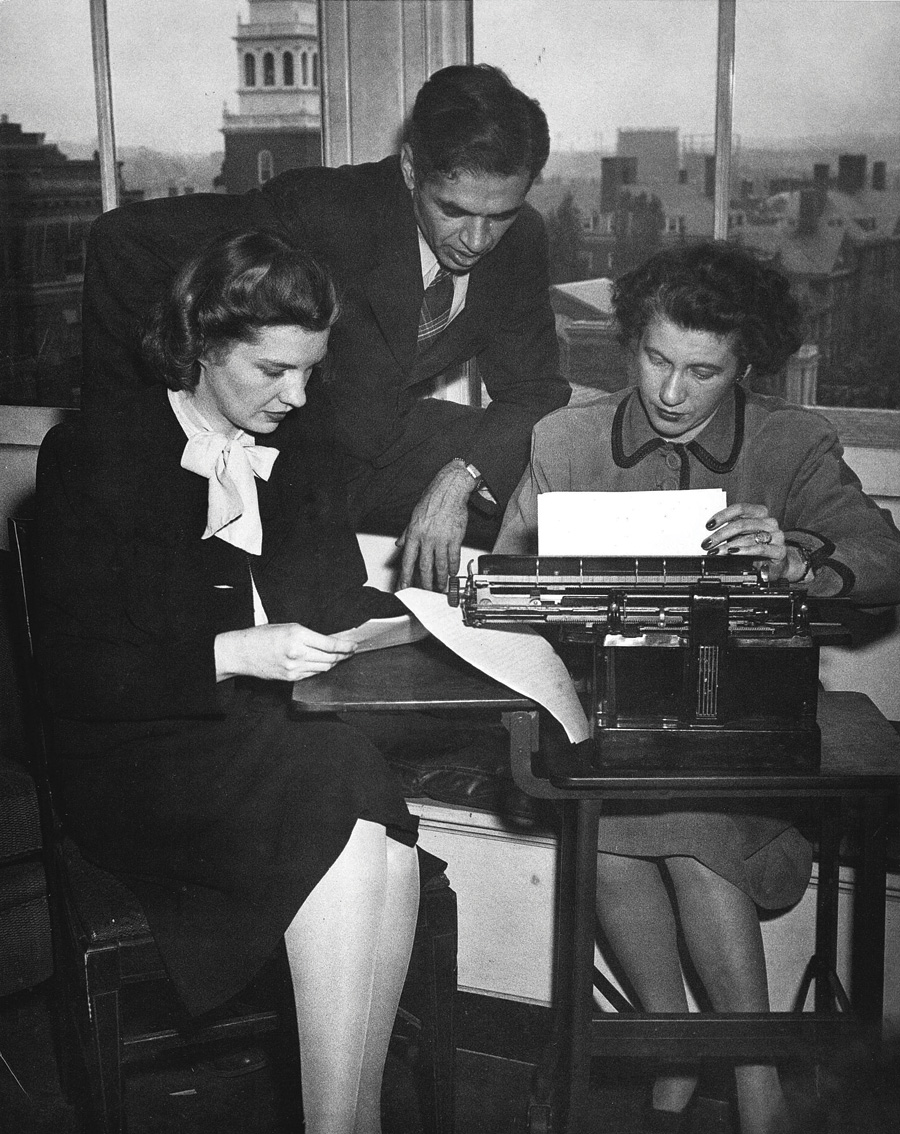 Mary Ellen Leary, NF '46: "Learning in the Nieman environment was wider than the campus limits. But the exhilaration of classes exceeded all expectations."
Mary Ellen Leary, NF '46: "Learning in the Nieman environment was wider than the campus limits. But the exhilaration of classes exceeded all expectations."Geneva Overholser, NF '86: "My two passions, for journalism and for feminism, seemed to have been in conflict. Thanks to a year of reflection, to classes in everything from constitutional law to poetry, and to conversations deep into the night with countless thoughtful and questing people, by the time I left Cambridge I was determined to be true to both those passions."
Anne Hull, NF '95: "The whole time, [Bill] Kovach is waiting for you to finally understand: You are in the midst of an epoch. Every day is a corruption of justice and faith. It’s right in front of you. What are you going to do about it?"
Mike Pride, NF '85: "Zwelakhe Sisulu, [my 1985 Nieman classmate,] had been tortured for reporting the news. … Until he shared his story, I took for granted the freedom to edit a newspaper without fear of repercussions from some higher authority."
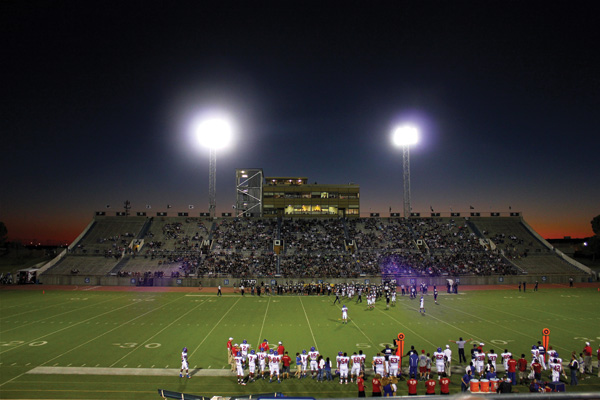 H.G. "Buzz" Bissinger, NF '86: "People say, ‘Why'd you begin to write books?’ The reason I really began to write books is that, after my Nieman year, I felt I owed it to myself to go and do something out of the box. So that's what I did."
H.G. "Buzz" Bissinger, NF '86: "People say, ‘Why'd you begin to write books?’ The reason I really began to write books is that, after my Nieman year, I felt I owed it to myself to go and do something out of the box. So that's what I did."
Robert A. Caro, NF '66: "I had always been assuming as a reporter what I had assumed as a student: that in a democracy power comes from the ballot box, from being elected, that power resides in elected officials. But I had already realized as a reporter that this man Robert Moses, who had never been elected to anything, had more power than any mayor or governor. … That was quite a moment for me in my life. It happened in a little room at Leverett House, and I am grateful to Harvard for giving me the room and giving me the time to think about it."
H.Y. Sharada Prasad, '56 (by his sons, Sanjiva and Ravi Prasad): "[Prasad] admired the openness and enterprise he saw in America. His year at Harvard greatly shaped his understanding of international relations and journalism."
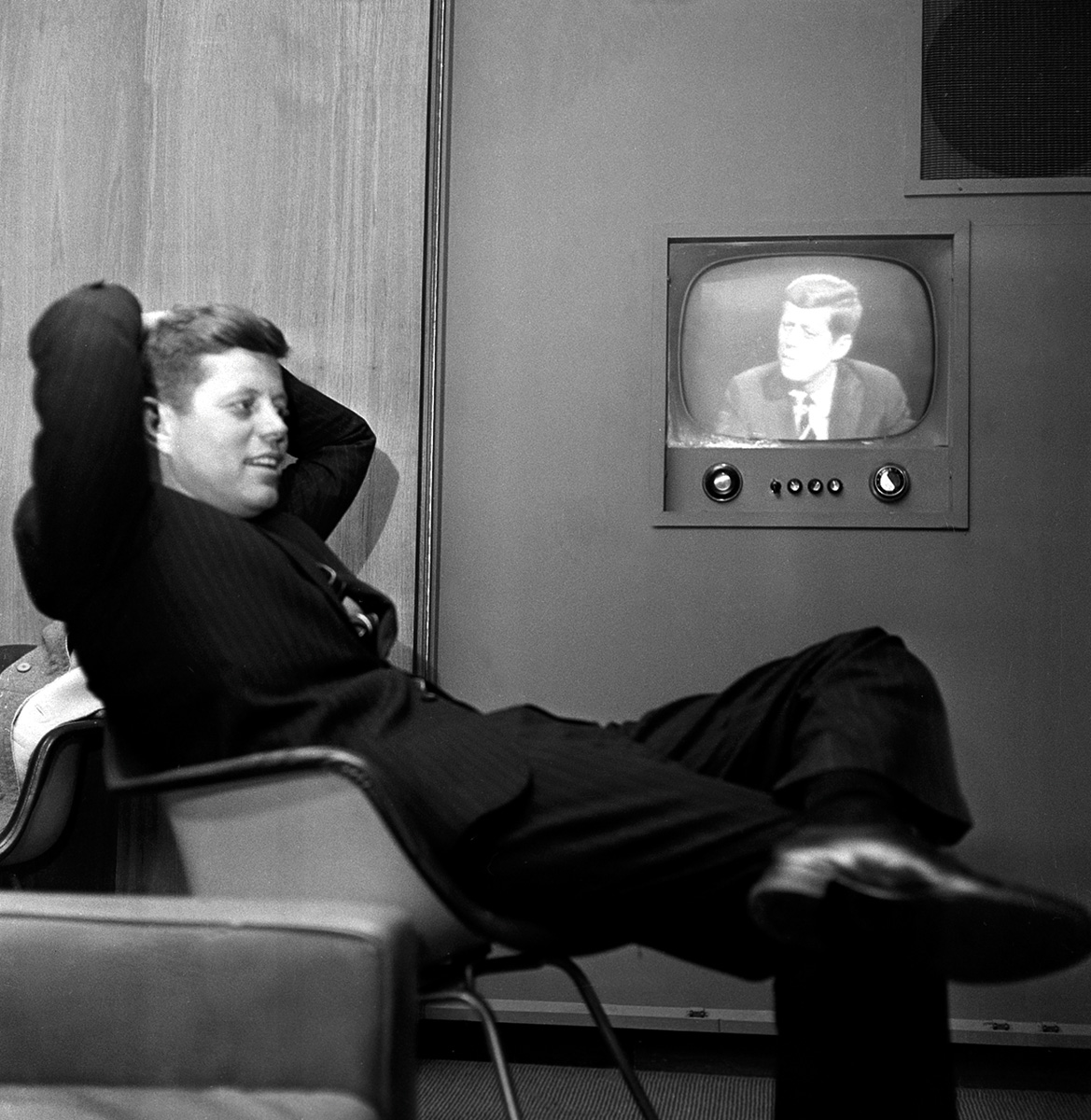 Robert Drew, NF '55: "We would have to drop word logic and find a dramatic logic in which things really happened. If we could do that, we'd have a whole new basis for a whole new journalism."
Robert Drew, NF '55: "We would have to drop word logic and find a dramatic logic in which things really happened. If we could do that, we'd have a whole new basis for a whole new journalism."
Hong Qu, NF '13: "The Fellowship crystallized my vision for my career. I realized that … my true passion lies in creatively applying data science to empower journalists to adapt and thrive in the networked society."
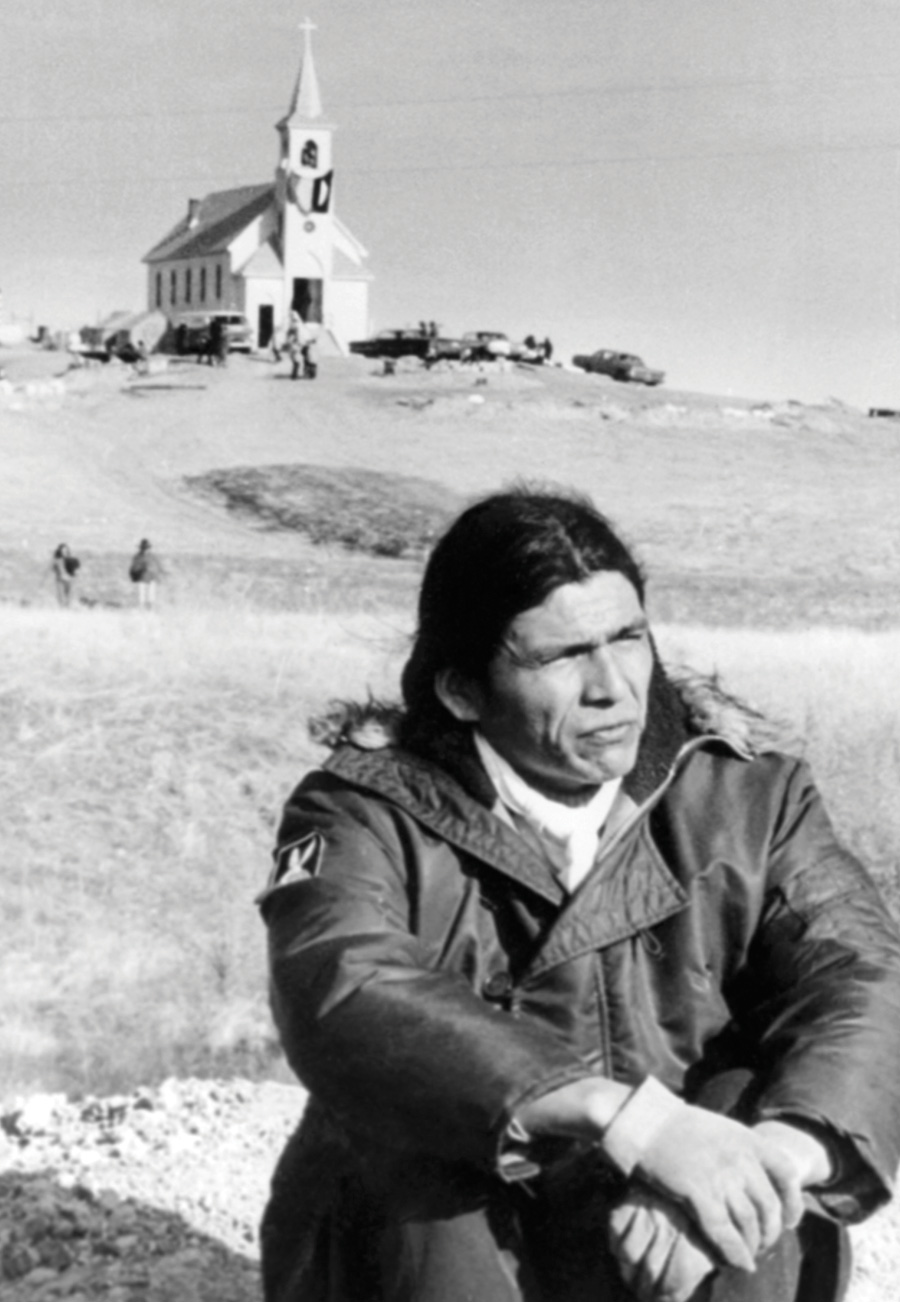 Tim Giago, NF '91: "I soon found myself … answering questions about Wounded Knee, the Little Bighorn, poverty on the Indian reservations. I found myself as much of a teacher as a student."
Tim Giago, NF '91: "I soon found myself … answering questions about Wounded Knee, the Little Bighorn, poverty on the Indian reservations. I found myself as much of a teacher as a student."
Katie King, NF '94: "There was much information that became extremely useful in my post-Nieman career. … We reviewed examples of longstanding industries becoming displaced by innovative new technologies. As I watched the digital media industry unfold, I saw the same."
Rosental Calmon Alves, NF '88: "I left my heart in Latin America but found another passion, a surprising one, during my Nieman year. … When I returned to Rio as an editor in 1991, I launched the first Brazilian computer-based, real-time financial news service."
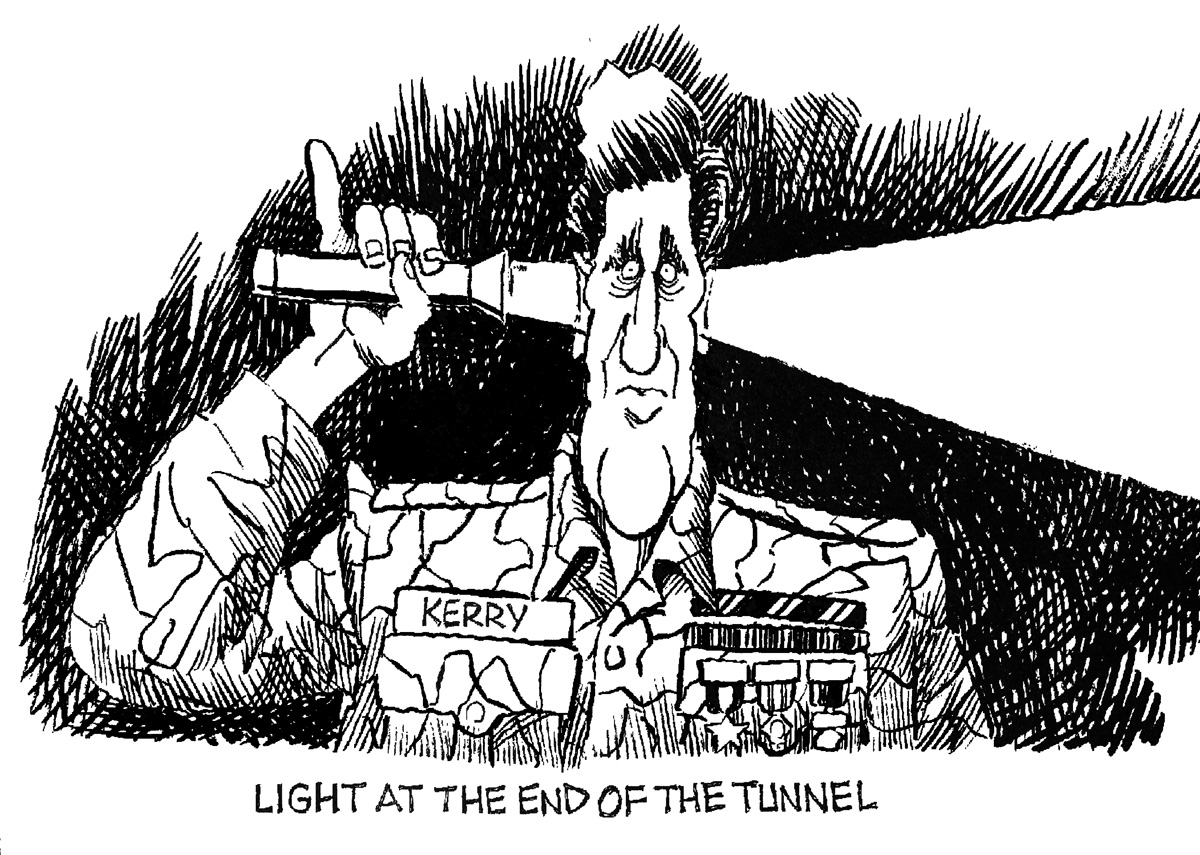 Doug Marlette, NF '81 (by Mark F. Ethridge III, NF ’86): "Discovering that he could match wits with the best allowed [Doug] to see himself in a larger way, as a writer and thinker, something beyond a cartoonist, something beyond what people expected. He became unafraid of risk or failure."
Doug Marlette, NF '81 (by Mark F. Ethridge III, NF ’86): "Discovering that he could match wits with the best allowed [Doug] to see himself in a larger way, as a writer and thinker, something beyond a cartoonist, something beyond what people expected. He became unafraid of risk or failure."Jerome Aumente, NF '68: "Nieman was the ticket to all the best of Harvard … I reveled in courses in planning and urban design, race relations, education, government and policy at Harvard and MIT."
Gene Weingarten, NF '88: "It seemed to embody the nature of the Nieman experience, which offered us not just an opportunity to experience new things, but to then blink, stare at a wall, take a sip of surprisingly good white wine, and try to figure out what it all really amounted to."
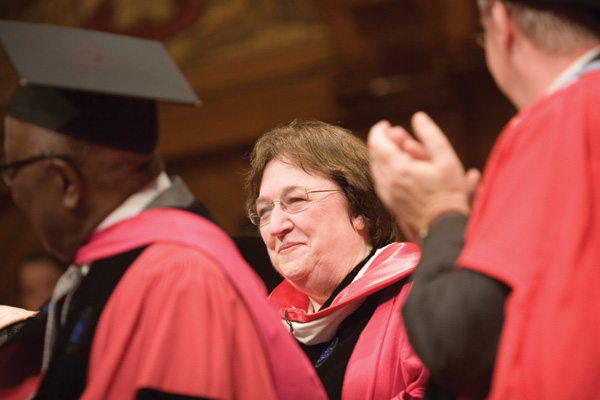 Amy Ellis Nutt, NF '05: "Poets and journalists are both in pursuit of the truth, both hew to clarity and precision, both require selecting and ordering words by being attentive to image, symbol and sense, and both rely on analogy and metaphor to convey meaning."
Amy Ellis Nutt, NF '05: "Poets and journalists are both in pursuit of the truth, both hew to clarity and precision, both require selecting and ordering words by being attentive to image, symbol and sense, and both rely on analogy and metaphor to convey meaning."David Skok, NF '12: "After my Nieman year, I relish any and all opportunities to make the business case for sustainable journalism. If we journalists can't articulate the business rationale for journalism, who will?"
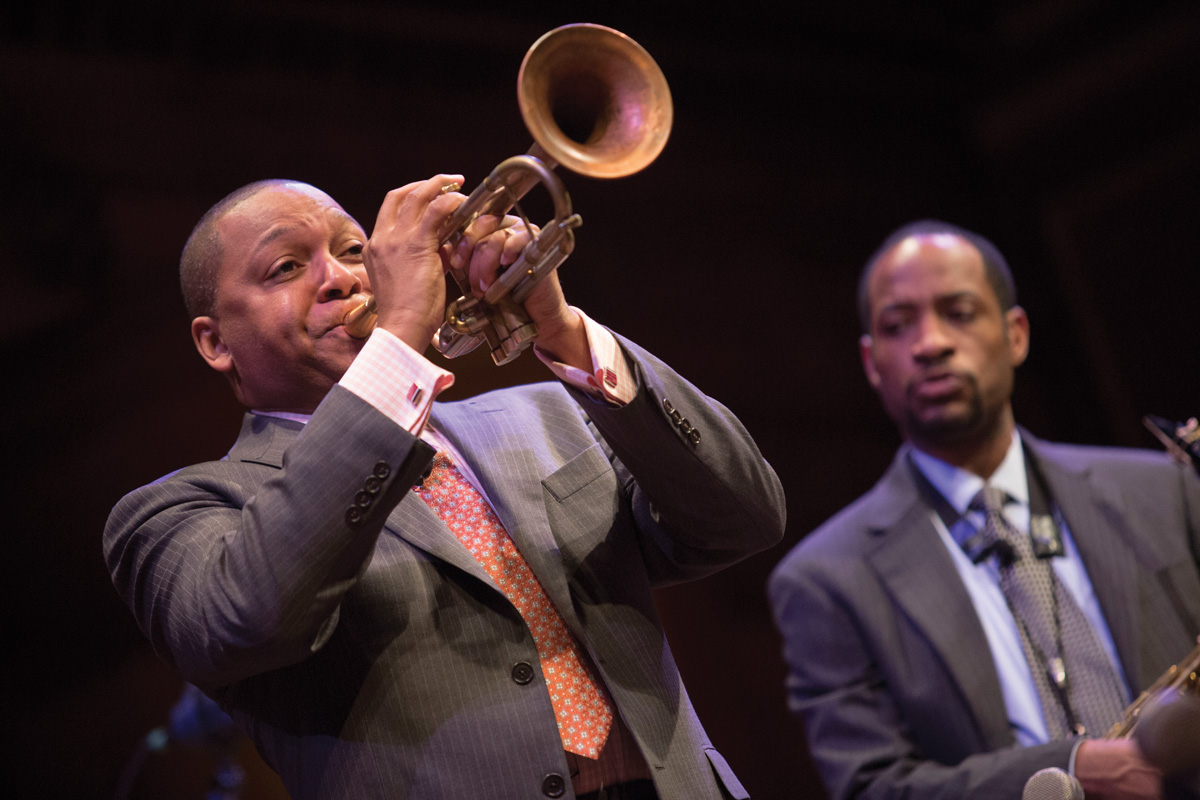 Laura Amico, NF '13: "Each one of us Nieman Fellows in the audience that night heard the same sleight of speech: when [Wynton] Marsalis said 'jazz,' we heard 'journalism;' when he said 'improvisation,' we heard 'innovation.'"
Laura Amico, NF '13: "Each one of us Nieman Fellows in the audience that night heard the same sleight of speech: when [Wynton] Marsalis said 'jazz,' we heard 'journalism;' when he said 'improvisation,' we heard 'innovation.'"Simeon Booker, NF '51: "No retreat into an ivory (or ivy) tower, the Nieman year was replete with roundtables, conferences with professors, cocktail receptions, speakers’ dinners, and a whole melange of social mingling among the Fellows, staff and faculty. The lack of any racial tension or segregation—indeed, the camaraderie!—was itself a career-changing moment for me."
Jack Bass, NF '66: "Jack Nelson, NF ’62, has written in his posthumously published memoir “Scoop” that professor Thomas Pettigrew’s course on race relations made him 'more aware of the injustice of segregation and racism.' I met Pettigrew only once, at a Nieman class event while he was on sabbatical leave. He later encouraged Jack and me to write 'The Orangeburg Massacre.'"
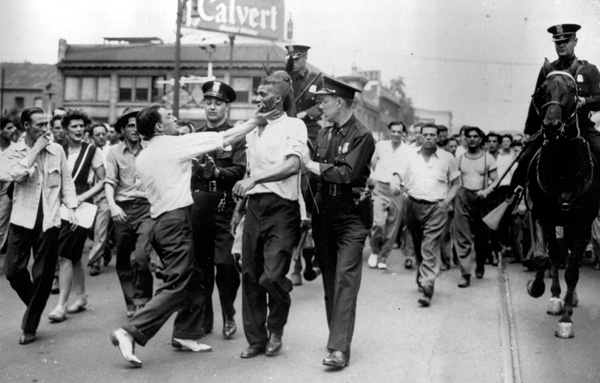 Thomas Sancton, NF '42 (by Tom Sancton Jr.): "His Nieman experience was an important landmark in his sense of himself as a serious journalist and writer, someone who could perform at the highest level of his profession."
Thomas Sancton, NF '42 (by Tom Sancton Jr.): "His Nieman experience was an important landmark in his sense of himself as a serious journalist and writer, someone who could perform at the highest level of his profession."Edwin A. Lahey, NF '39 (by Louis M. Lyons, NF '39): "Lahey to the Harvard mind was the prototype of Nieman Fellows. His range of interests was surprising. … Such insistent curiosity is, of course, one of the most valuable qualities for journalism."
Harry S. Ashmore, NF '42: "I remember going over to the President's house. It was a very impressive thing for a young man from Greenville, South Carolina, to go to, to have dinner with the president of Harvard University."
Pekka Mykkänen, NF '04: "Not only was I within shouting distance of some of the leading scholars on China, I was a mere five-minute bicycle ride away from [former Finnish President Carl Gustaf Emil] Mannerheim's China travel diary."
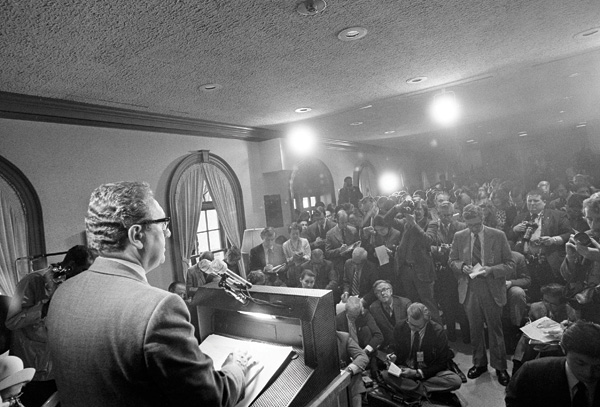 Murrey Marder, NF '50: "I also had a lot of dealings and learned a lot from the outstanding members of the faculty … whom I drew on for the rest of my life in journalism, not as cronies, but as valuable sources of information"
Murrey Marder, NF '50: "I also had a lot of dealings and learned a lot from the outstanding members of the faculty … whom I drew on for the rest of my life in journalism, not as cronies, but as valuable sources of information"Katherine Fulton, NF '93: "Journalism will soon be led entirely by digital natives. And a few of them who are very fortunate will have their lives changed at Lippmann House."
 Gary Knight, NF '10: "When I left Harvard, I picked up a camera for the first time in a year and went to Arizona and photographed a story on immigration using the built environment—the landscape—as the sole character in the story, an unthinkable idea before."
Gary Knight, NF '10: "When I left Harvard, I picked up a camera for the first time in a year and went to Arizona and photographed a story on immigration using the built environment—the landscape—as the sole character in the story, an unthinkable idea before."
James D. Squires, NF '71: "My best friend in the class was the more worldly and accomplished Jack Schwartz, erudite book editor of Newsday. … [Your] stories are OK, Jack said, but OK is never good enough. From that day to this, OK has never been satisfactory. Everything I have ever done could have and should have been better."
William J. Lederer, NF '51: "After submerging myself in Widener Library for a couple of weeks, information began busting all over the place like a Kansas tornado. … I learned that the professors were teachers, not fact storehouses, and that their methods worked if the student had a serious interest."
Harro Albrecht, NF '07: "After three months of seeing sick and desperate people, I wanted to share these experiences with someone … so I sent out a group e-mail to my fellow Niemans. Within a few hours I received 10 replies from all over the world."
Harold Hayes, NF '59 (by Carol Polsgrove): "Hayes knew he had a lot to learn. He had been an indifferent student at Wake Forest … Harvard was Hayes's bid for remedial education."
Larry Tye, NF '94: "Eddie Bernays told how he had engineered the overthrow of Guatemala's leftist government, promoted cigarettes he suspected were deadly … and remade bacon and eggs into the all-American breakfast."
 Hedrick Smith, NF '70: "The Nieman year opened doors of understanding, avenues of cultural entree and, most importantly, a way to speak directly to Russians without the filter of a translator."
Hedrick Smith, NF '70: "The Nieman year opened doors of understanding, avenues of cultural entree and, most importantly, a way to speak directly to Russians without the filter of a translator."John Carroll, NF '72: "Through [Harvard professor Merle] Fainsod I learned that seemingly small facts can be clues to large truths … I became an editor, always on the lookout for the larger stories buried among the routine facts, partial to stories that were backed by previously under-examined troves of documents."
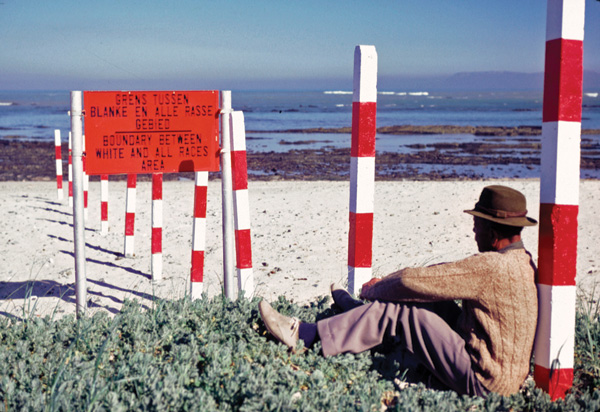 Tony Heard, NF '88: "My Nieman stint was a godsend in a career with enough brushes with power for comfort, including arrest under security laws over a full-page illegal interview with African National Congress leader Oliver Tambo in 1985. … My time spent at Lippmann House gave me inspiration and direction to pursue my journalism despite setbacks."
Tony Heard, NF '88: "My Nieman stint was a godsend in a career with enough brushes with power for comfort, including arrest under security laws over a full-page illegal interview with African National Congress leader Oliver Tambo in 1985. … My time spent at Lippmann House gave me inspiration and direction to pursue my journalism despite setbacks."
Janet Heard, NF '10: "I feel privileged to have met [Margaret] Marshall and [Anthony] Lewis. These two unassuming human rights figures embody the values both my father and I associate with the Nieman year: the pursuit of journalistic excellence, freedom of speech, and justice."
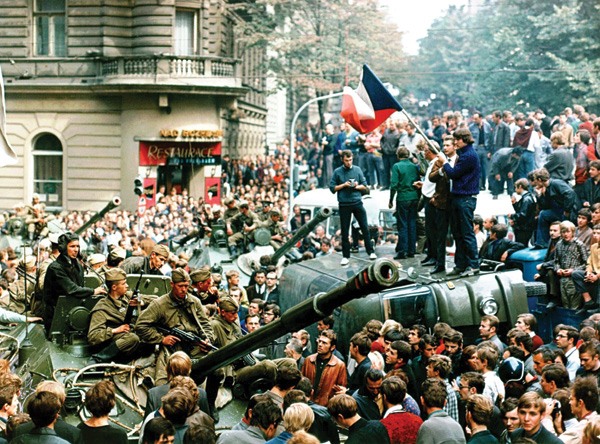 Josef Tucek, NF '97: "I learned how my colleagues work, in the U.S. as well as in many other countries. … It was breathtaking to comprehend all the different solutions creative people find to overcome or fight censorship."
Josef Tucek, NF '97: "I learned how my colleagues work, in the U.S. as well as in many other countries. … It was breathtaking to comprehend all the different solutions creative people find to overcome or fight censorship."
Percy Qoboza, NF '76: "The thing that scared me most during my Cambridge year was the fact that I had accepted injustice and discrimination as 'part and parcel of our traditional way of life.' After my year, the things I had accepted made me angry."
Victor K. McElheny, NF '63: "The meaning of a career in journalism was raised to a new level … I learned how a very special program of professional energizing could be made to work in practice and how it could be integral to a university's intellectual mission."
Patricia S. Guthrie, NF '96: "I was enthralled with the man and his many identities—black, gay, Yankee, Republican, Baptist. Rev. Peter J. Gomes hugged, he laughed, he greeted each member of his congregation with such joy as they exited the church. He helped me believe again."
I. Roberto Eisenmann Jr., NF '86: "We were battling a cruel dictatorship, which was supported by the U.S. at the time. Having a voice in the U.S. helped the opposition, and I had acquired that voice only because I was a Nieman. When I returned to Panama, my work was to rebuild a destroyed newspaper."
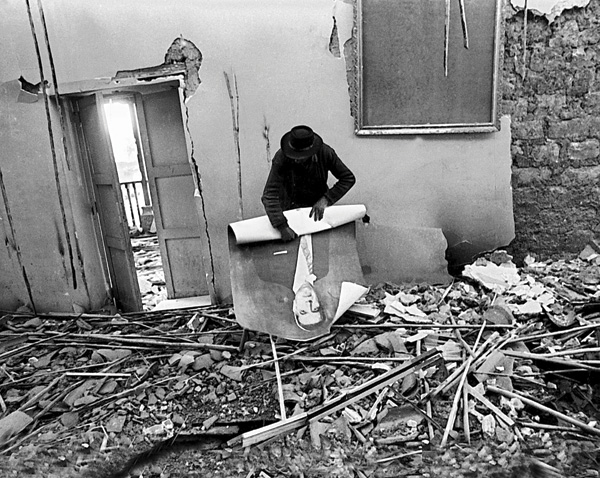 Gustavo Gorriti, NF '86: "The Nieman experience … strengthened my vision and resolve about what thorough, uncompromising journalism meant for my then wounded country. That vision and resolve helped me navigate some difficult times, unfailingly bringing to mind the Nieman Fellowship and our admirable curator and de facto rabbi, Howard Simons."
Gustavo Gorriti, NF '86: "The Nieman experience … strengthened my vision and resolve about what thorough, uncompromising journalism meant for my then wounded country. That vision and resolve helped me navigate some difficult times, unfailingly bringing to mind the Nieman Fellowship and our admirable curator and de facto rabbi, Howard Simons."
Daniel Ulanovsky, NF '96: "It was a revelation to break out of the logic of mass journalism and venture into the workings of the individual."
Dorothy Wickenden, NF '89: "['Lincoln' author David Herbert Donald] wrote in his preface that the book 'seeks to explain rather than to judge.' It's not a bad motto for historians — or journalists, for that matter."
Atsuko Chiba, NF '68 (by Mutsuko Murakama): "Soon after returning to Japan, Atsuko … had the confidence to write about her breast cancer, describing the challenges she faced at a time when talking openly about cancer was taboo."
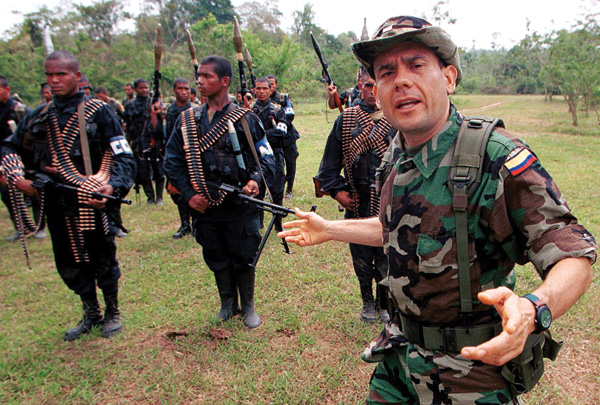 María Cristina Caballero, NF '97: "The Nieman year gave me not only time to reflect on my country's troubles but also provided me with a broader international perspective … The Nieman experience opened doors to new opportunities — for me and my country."
María Cristina Caballero, NF '97: "The Nieman year gave me not only time to reflect on my country's troubles but also provided me with a broader international perspective … The Nieman experience opened doors to new opportunities — for me and my country."
William Marimow, NF '83: "When I returned to action in the newsroom … I came back with a renewed commitment to aggressively covering public affairs in Philadelphia, Pennsylvania and the nation."
Beth Macy, NF '10: "Working in one region for one medium-sized newspaper for almost 25 years, it’s hard to enumerate the many ways that the Nieman expanded my world."
Michael J., NF '68, and Pippa Green, NF '99: "In one generation of Niemans, our world had changed. Mandela had been a prisoner when my father was here; now he was President. The Nieman made us more humble, more aware of what we didn't know."
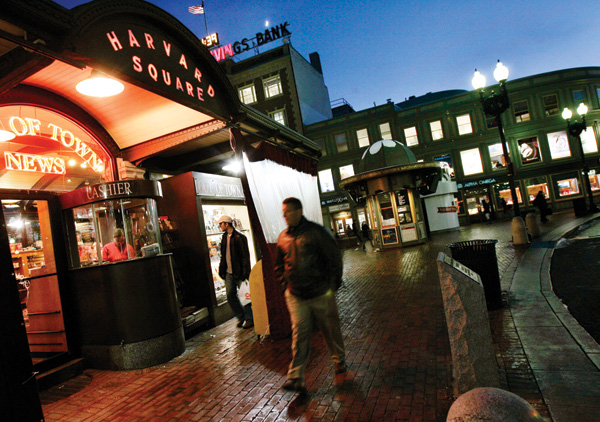 Tom Regan, NF '92: "I stood in the middle of Harvard Square thinking to myself, ‘Damn, I wish there was some way I could just read newspapers on my computer.’ [Bill Kovach] encouraged me to see if there was a way to make it work once I got back home."
Tom Regan, NF '92: "I stood in the middle of Harvard Square thinking to myself, ‘Damn, I wish there was some way I could just read newspapers on my computer.’ [Bill Kovach] encouraged me to see if there was a way to make it work once I got back home."
Richard, NF '56, and John Harwood, NF '90: "Harvard psychologist Jerome Kagan gave me a gift that I've kept opening ever since: a reminder from another discipline of the need to consider every angle in assessing truth. That is, remember not just the context in which an event takes place, but the nature of the evidence that's available or is not, and the nature of the inquiry yielding that evidence."
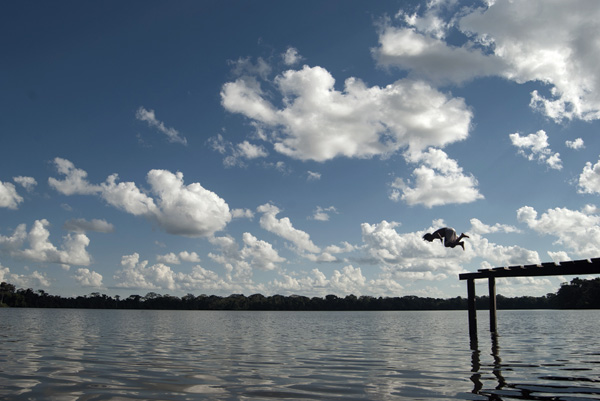 Raul Peñaranda, NF '08: "Bob Giles spoke about the responsibility of reporters to ask tough questions of powerful people. That statement reminded me of what I had long believed about journalism and was fundamental to my decision to launch the Página Siete newspaper after my Fellowship ended."
Raul Peñaranda, NF '08: "Bob Giles spoke about the responsibility of reporters to ask tough questions of powerful people. That statement reminded me of what I had long believed about journalism and was fundamental to my decision to launch the Página Siete newspaper after my Fellowship ended."
János Horvát, NF '76: "Curator Jim Thomson wanted me to discover the eccentricities of this brave new world. … He said, ‘Your course is here—the United States, its life, its television, its press.’ "
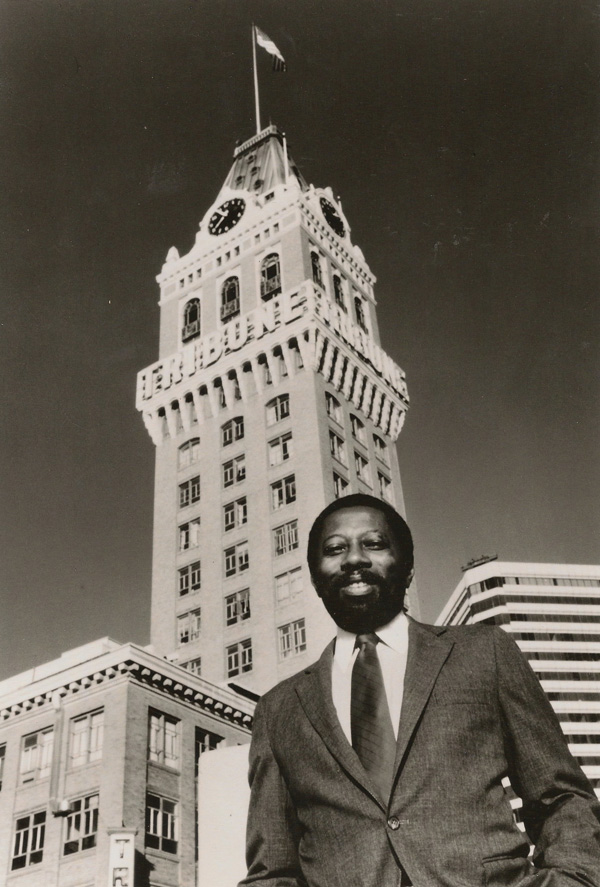 Robert C., NF '66, and Dori Maynard, NF '93: "When I became a Nieman, my father, who had chafed at the male-only composition of classes during his time, reveled in the fact that we were the first father/daughter Niemans."
Robert C., NF '66, and Dori Maynard, NF '93: "When I became a Nieman, my father, who had chafed at the male-only composition of classes during his time, reveled in the fact that we were the first father/daughter Niemans."
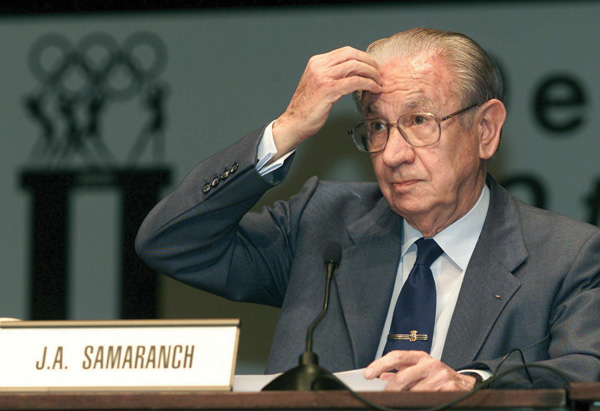 Howard Berkes, NF '98: "Bill Kovach asked us to take the sum total of our experience and consider how we'd take our Nieman year into the future. … By the end of the year, I had followed the Kovach path, helping to expose illicit gifts, cash payments, and free vacations for [International Olympic Committee] members"
Howard Berkes, NF '98: "Bill Kovach asked us to take the sum total of our experience and consider how we'd take our Nieman year into the future. … By the end of the year, I had followed the Kovach path, helping to expose illicit gifts, cash payments, and free vacations for [International Olympic Committee] members"
Alice Bonner, NF '78: "We were not entering journalism just for jobs, Bob Maynard, NF '66, emphasized. Our goal was to make a difference through the profession toward building a more perfect America."
George de Lama, NF '92: "I've dealt professionally with virtually every subject I studied at Harvard, and so many more. Everything is connected, much more than I imagined. For me, that is a precious gift from my year in Cambridge, and from Bill Kovach."
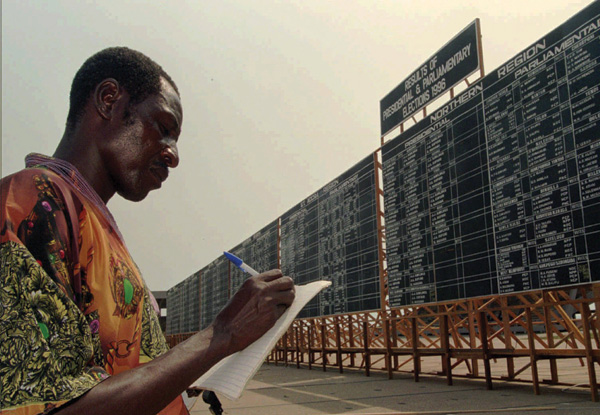 Kabral Blay-Amihere, NF '91: "As we shared experiences through the Soundings, our colleagues from the West came to appreciate the sacrifices made by journalists from the Third World … and to respect our modest contributions to the struggle for democracy in our respective countries."
Kabral Blay-Amihere, NF '91: "As we shared experiences through the Soundings, our colleagues from the West came to appreciate the sacrifices made by journalists from the Third World … and to respect our modest contributions to the struggle for democracy in our respective countries."
Margaret Engel, NF '79: "For a 26-year-old reporter from The Des Moines Register, to hear this prestigious professor confess to the fraud syndrome was eye-opening. It was the first in a cascade of revelations during my Nieman year that stripped prestige of its power."
Ed Williams, NF '73: "Soon after my Nieman year, I asked my friend and mentor Reese Cleghorn how to get into editorial writing. Come join me at The Charlotte Observer, he said. I did. A few years later, I succeeded him as editor of the editorial pages."
Fletcher P. Martin, NF '47 (by Peter Nieman Martin Sr.): "[My father] certainly felt the burden of being the first black journalist to be accepted into the program. He also felt the relief of being accepted by his classmates as an equal."
Sunday Dare, NF '01: "On my return to Nigeria, I held a number of training sessions across newsrooms to teach journalists the importance of writing effectively and knowledgeably. … I also mentored a group of young journalists who have since gone on to become newsroom leaders."
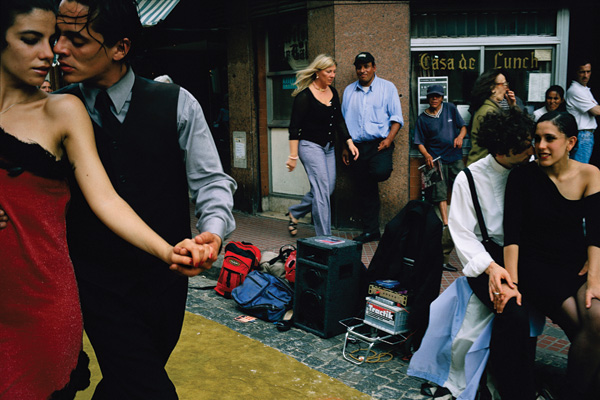 Pablo Corral Vega, NF '11: "It's not what Harvard gives you; it's what Harvard takes away from you … One has to get down from one's high horse. There are so many extraordinary people, brilliant people."
Pablo Corral Vega, NF '11: "It's not what Harvard gives you; it's what Harvard takes away from you … One has to get down from one's high horse. There are so many extraordinary people, brilliant people."Ying Chan, NF '96: "I plunged with my classmates into the lectures and seminars on the promises and challenges of digital life. In June, I spent a week in the basement of Lippmann House teaching myself HTML."
Anthony, NF '57, and David Lewis, NF '94: "I think the whole Nieman year was a 'moment' for my dad. … He fell in love with the law and found a direction for a journalism career that would focus so much on the rules humanity either lives by or chooses to ignore: the law, human rights, issues of simple right and wrong."
 Jeb Sharp, NF '06: "It was John Parker's last lecture. His message was clear: You get your time on stage. Use it well. He said a bit more … and then he closed his books and walked off the stage himself, without looking back, without saying goodbye. It's a good Nieman message, too: Whatever it is you're here for, get on with it."
Jeb Sharp, NF '06: "It was John Parker's last lecture. His message was clear: You get your time on stage. Use it well. He said a bit more … and then he closed his books and walked off the stage himself, without looking back, without saying goodbye. It's a good Nieman message, too: Whatever it is you're here for, get on with it."